Our Verdict
The poster child for both the generational uplift of the Zen 4 architecture and the efficient potential of the Eco Mode. Though the competition with Alder Lake makes for tough reading.
For
- Outperforms the 5800X3D in gaming
- Hits 5.15GHz under full all-core loads
- Eco Mode is ace
Against
- Struggles against Intel's latest
PC Gamer's got your back
On the face of it the Ryzen 7 7700X is maybe the least exciting of all the new Zen 4 processors AMD has just released. The Ryzen 9 7950X has the benefit of being cheaper and faster than its predecessor, and comes rocking the highest thread count of any chip out there. And the Ryzen 5 7600X is the highest clocked mainstream CPU around and is just $299.
But an $399 eight-core, 16-thread CPU in 2022 seems kinda passé.
Which is why AMD made a big deal out of jamming a freakish amount of extra L3 cache into its Ryzen 7 5800X3D earlier this year. The addition of 3D V-cache made that Zen 3 CPU the fastest AMD gaming CPU ever, even if it was just sporting the same essential cores and core count as the standard Ryzen 7 5800X. And yet just five months later here we are with the Ryzen 7 7700X outperforming it almost across the board, even in most games.
In some gaming cases it will actually match the top-end $700 Ryzen 7000-series CPU, sometimes even beating it, which is certainly not something you can ignore when you're looking for a new chip. That makes what might have seemed a rather pedestrian CPU rather more interesting.
Essentially what we have here is a direct replacement for the Ryzen 7 5800X of the previous generation. But it's called a 7700X because the 7800X designation is likely being reserved for a Zen 4 3D V-cache gaming chip. At least once AMD can get it put together in the fab and shunted out the door to face up to Intel's Raptor Lake launch.
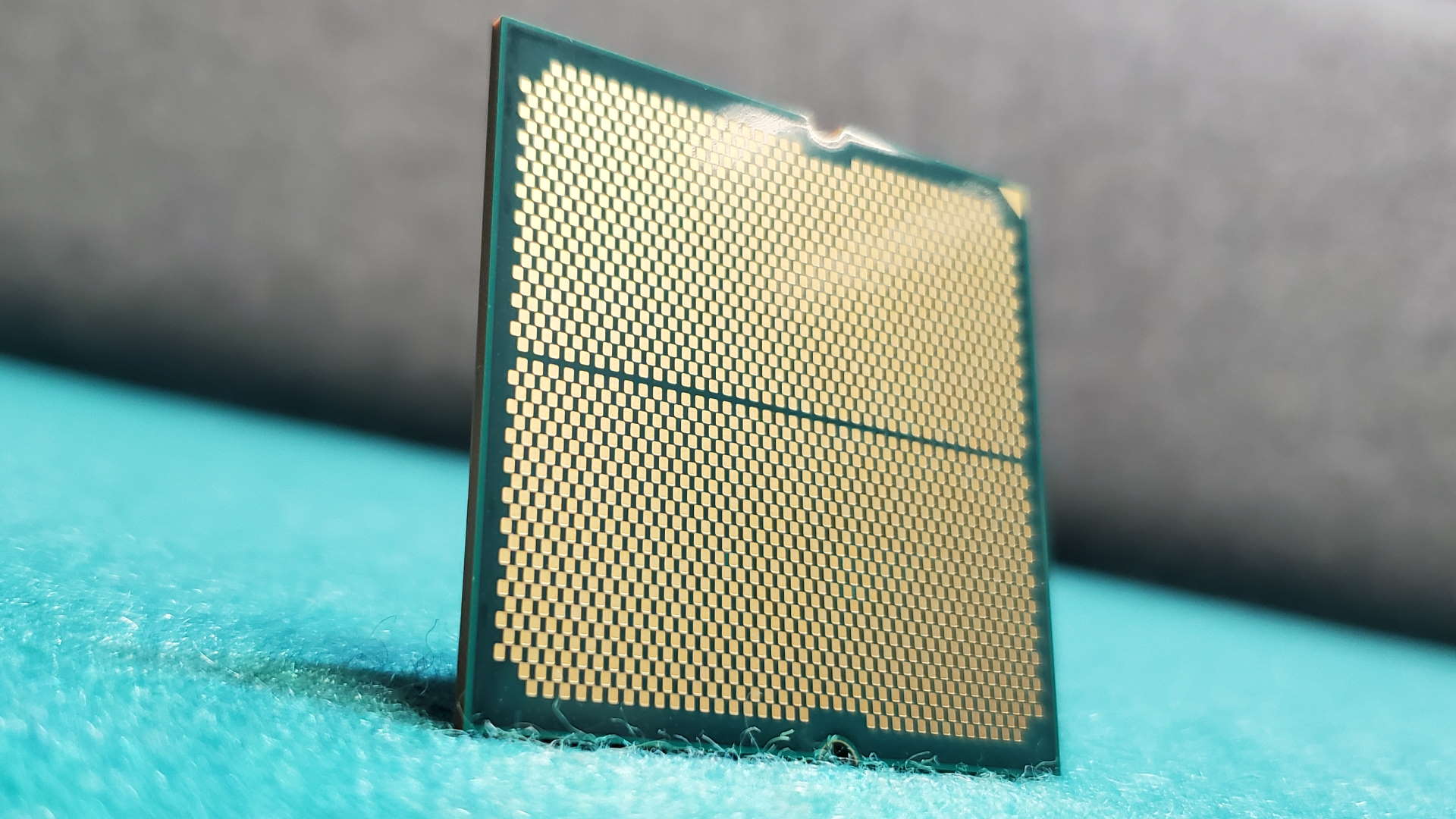
Cores: 8
Threads: 16
Socket: AMD AM5
CCD lithography: TSMC 5nm
CCD die size: 70mm²
CCD transistor count: 6.5 billion
IOD lithography: TSMC 6nm
IOD die size: 122mm²
IOD transistor count: 3.4 billion
Max boost clock: 5.4GHz
Base clock: 4.5GHz
L2 cache: 8MB
L3 cache: 32MB
Memory support: DDR5-5200 (non-OC)
TDP: 105W
Price: $399
That means we've got eight Zen 4 cores, with simultaneous multithreading delivering 16 threads of compute power. We've run a deeper look at the new Zen 4 architecture in our Ryzen 9 7950X review, but suffice to say it's a derivative of the Zen 3 tech, but with some extra L2 cache and a redesigned front end created to better feed data into the wider execution engines brought into the previous generation.
Oh, and higher clock speeds. Way higher clock speeds. Okay, the Ryzen 7 7700X isn't up to the 5.9GHz heights of its 16-core brethren, but with an all-core frequency of 5.15GHz out of the box it's still seriously impressive. Under single-core loads, such as those of most game engines, I've measured it running at 5.55GHz.
These would have been heavily overclocked frequencies just a few months back, and we're getting them in stock-clocked AMD chips. Though there are noises Intel's on the same track with 6GHz numbers coming out of Jacob's recent trip to Intel's Haifa labs.
The Ryzen 7 7700X sports the same 105W TDP as the Ryzen 7 5800X and 5800X3D, but its 5nm compute and 6nm I/O dies deliver efficiency improvements and the Eco Mode feature delivers outstanding performance per watt figures. I'm a big fan of Eco Mode in the Zen 4 generation of chips and probably more so with this more middle-order processor, too.
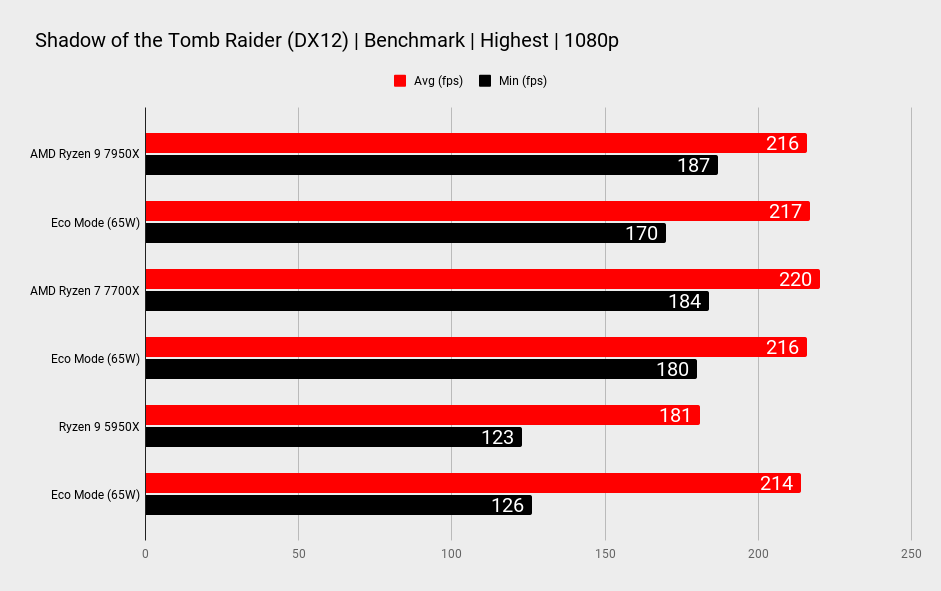
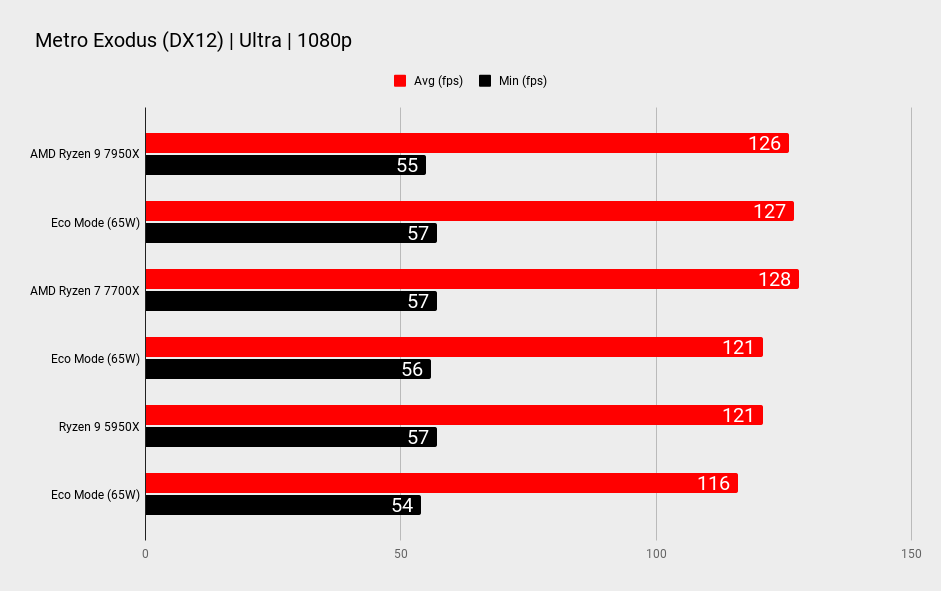
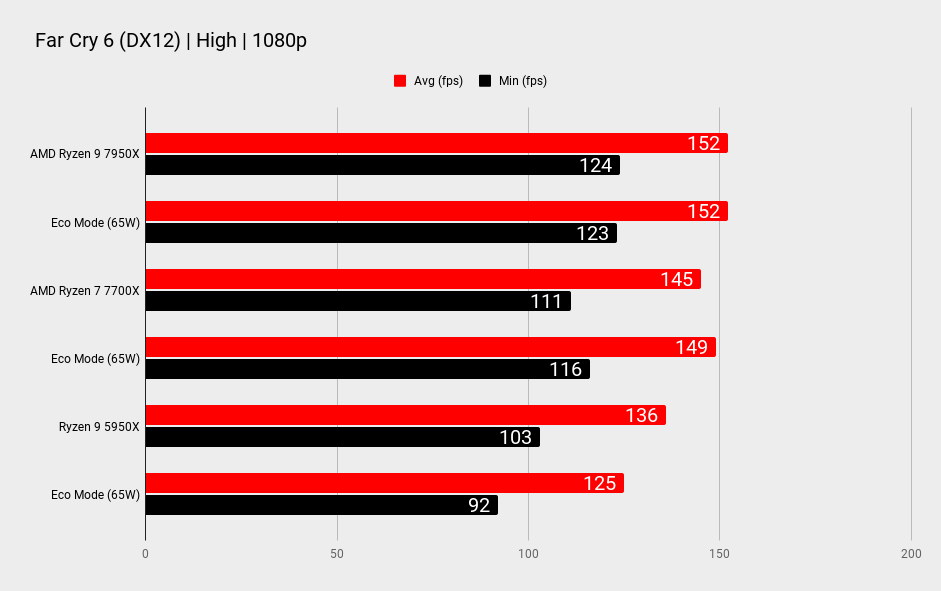
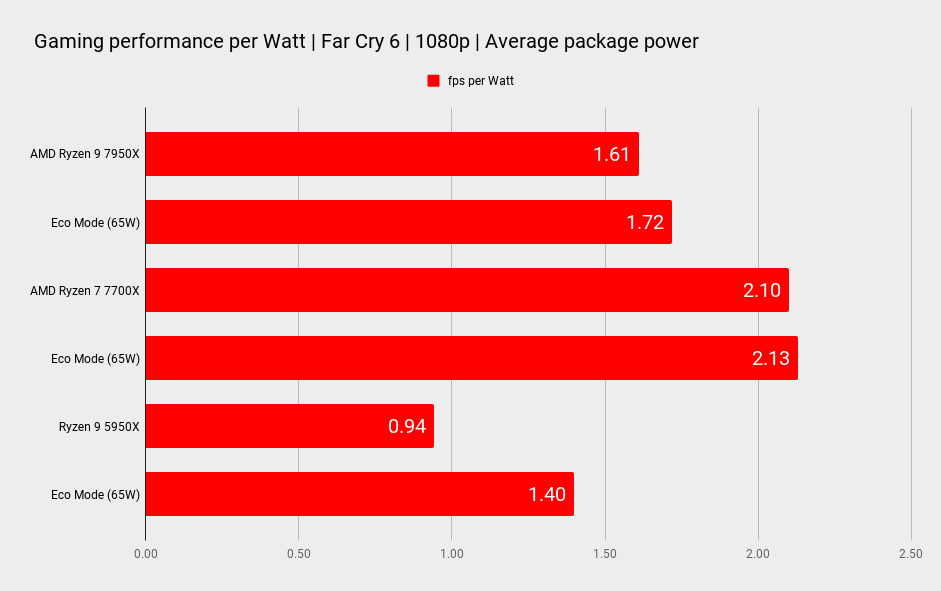
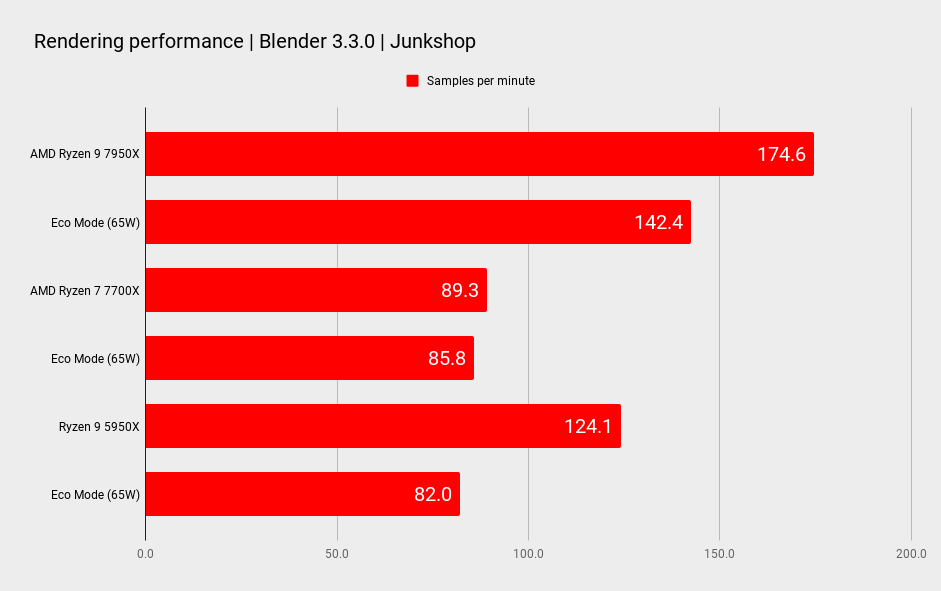
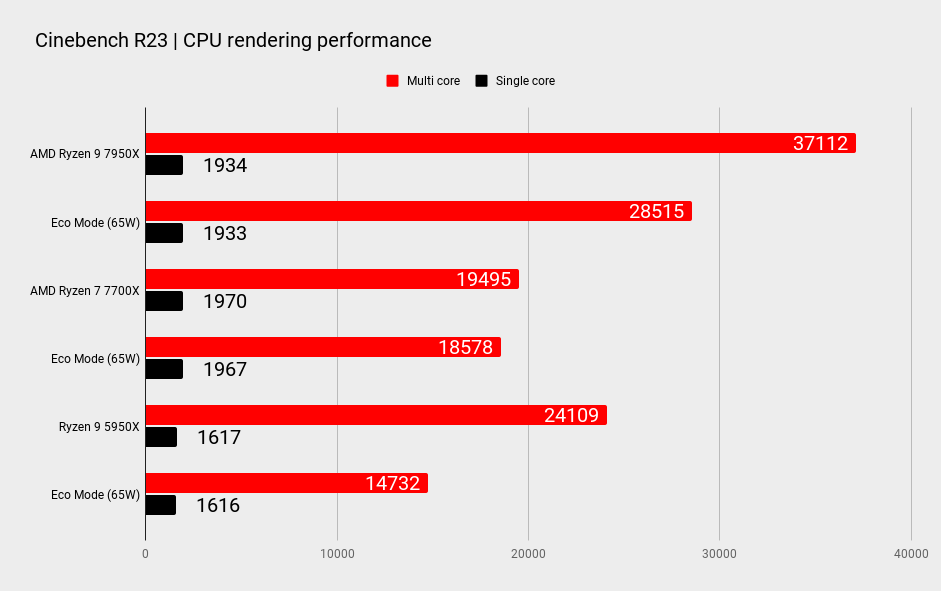
Eco Mode gives you the option to run your mighty Zen 4 silicon using less power, hence the 'eco' bit. That's something we're all a little more conscious of at the moment, given the economic situation and the spiking energy prices across the globe. From the 105W TDP you can drop it down to a 65W TDP instead, and barely make a dent in performance. That's because performance and input power operate on a curve, so you have to keep putting in much more power to keep the performance going upwards.
So sometimes a big drop in power usage will only result in a surprisingly small dip in actual real-world performance. Such is the case with the Ryzen 7 7700X, where gaming especially just doesn't suffer. At worst you get 95% of the performance for a chunk less power, lower thermals, and therefore quieter gaming.
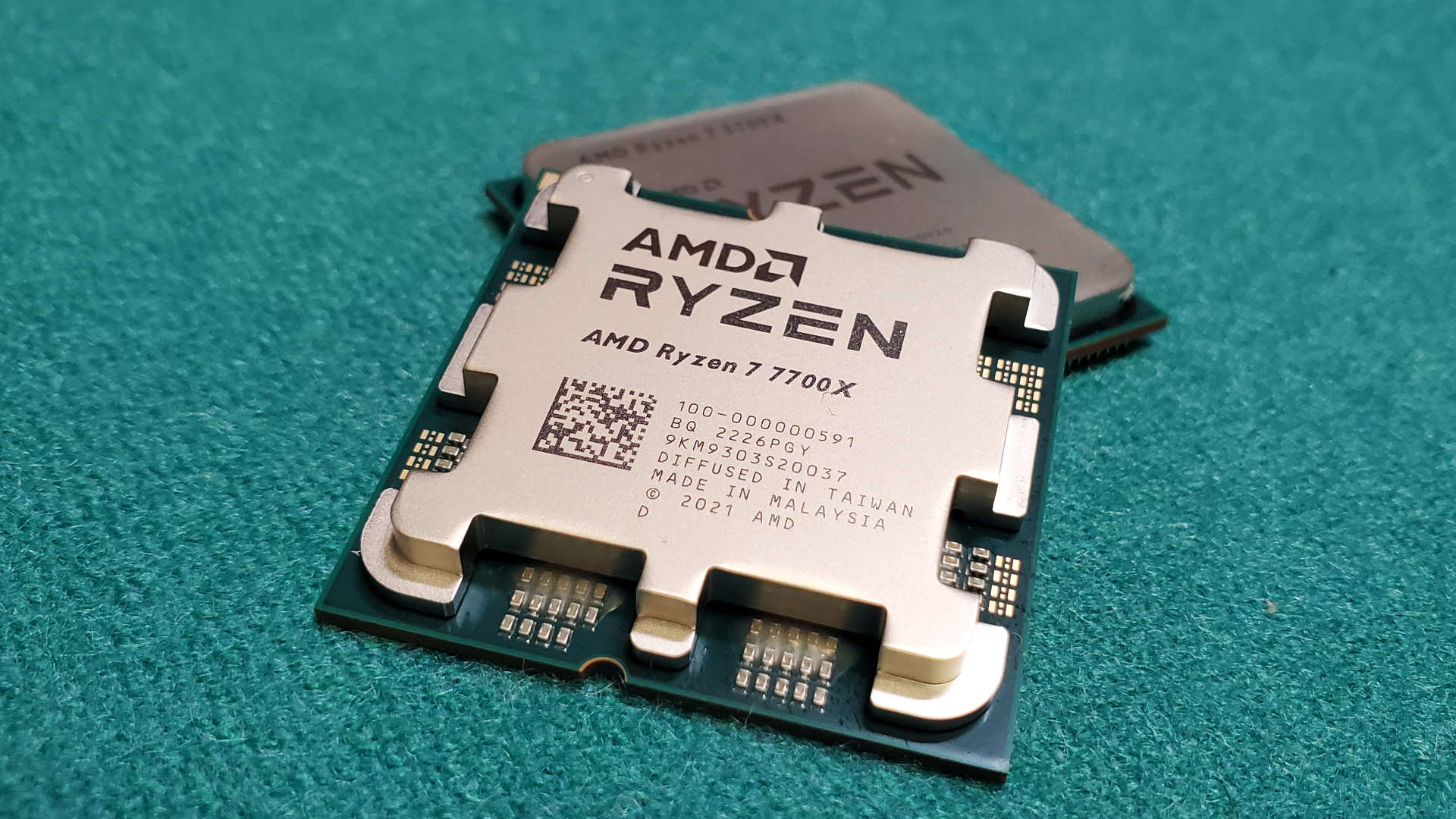
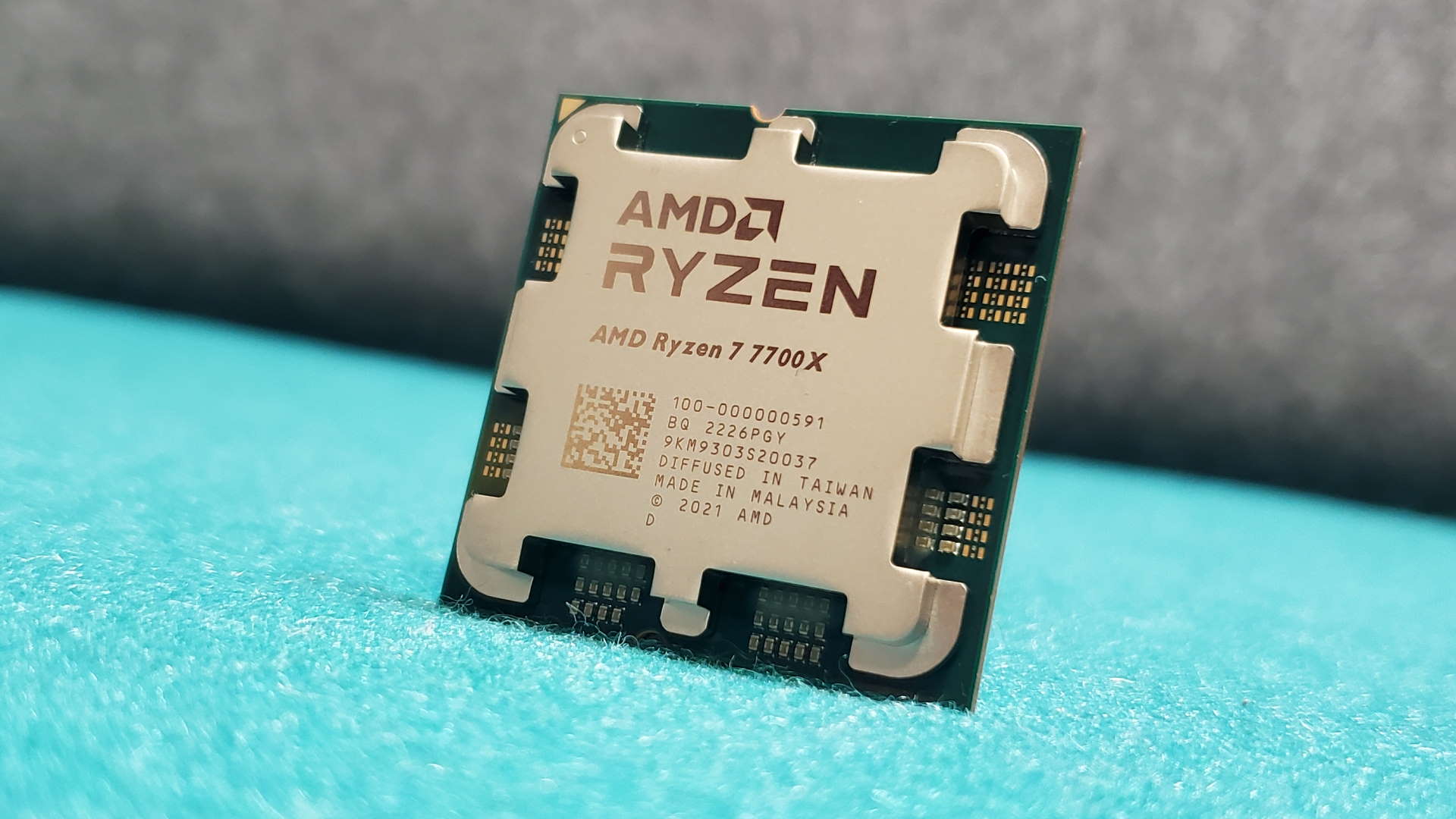
Unlike the 170W TDP Ryzen 9 7950X, where the drop in power to 65W results in much lower multithreaded performance—down to 77% of its full capabilities—that doesn't happen with the Ryzen 7 7700X. Cinebench performance at 65W is 95% of what the chip manages at 105W, and sometimes gaming frame rates actually improve.
The temps and gaming wattage don't really drop that much in 65W mode, but then under gaming loads its cores aren't maxing out anyways. It is still almost reaching 5GHz under all-core loads at 65W, and I think that is seriously impressive.
Which might have you questioning why AMD didn't just make this a 65W chip in the first place, and certainly why the Ryzen 5 7600X has been shifted from a 65W TDP in Zen 3 to a 105W TDP in Zen 4. Honestly, I believe it's about competition.
As much as it is good to talk about efficiencies, lower power demands, and performance per watt for new architectures, that doesn't sell chips. What sells is straight performance, and AMD knew that it could push more power through its 5nm core complex and get these high clock speeds and attention-grabbing numbers.
Gaming Performance
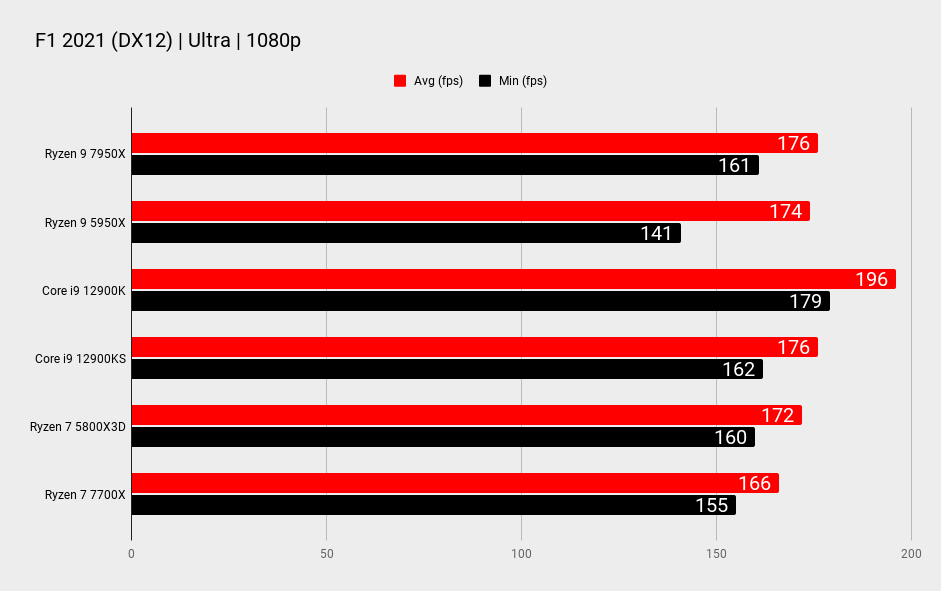
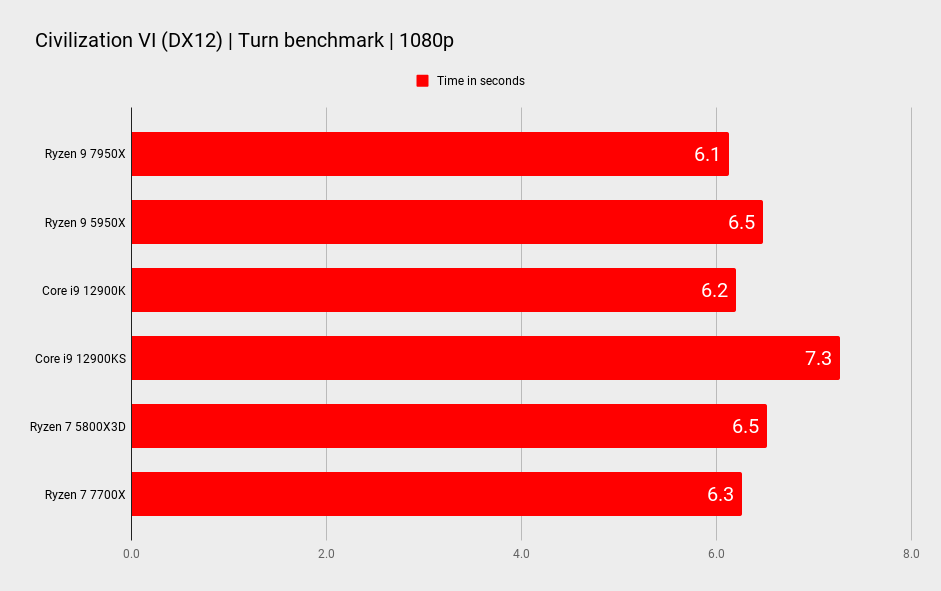
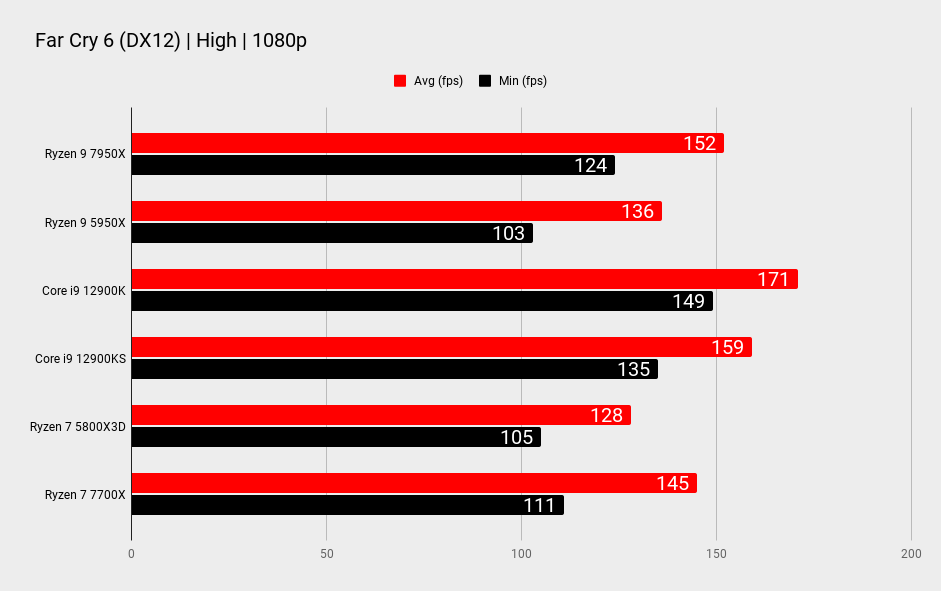
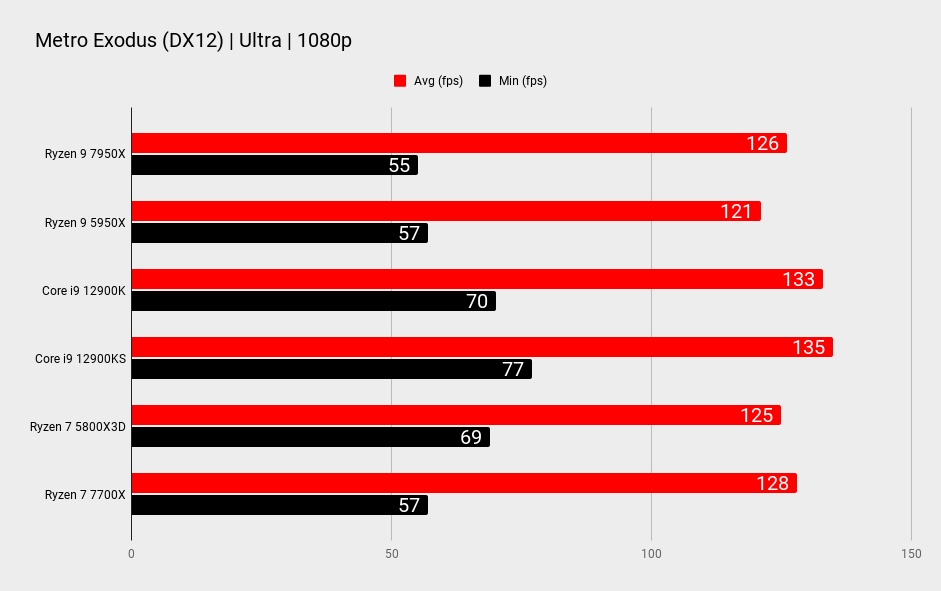
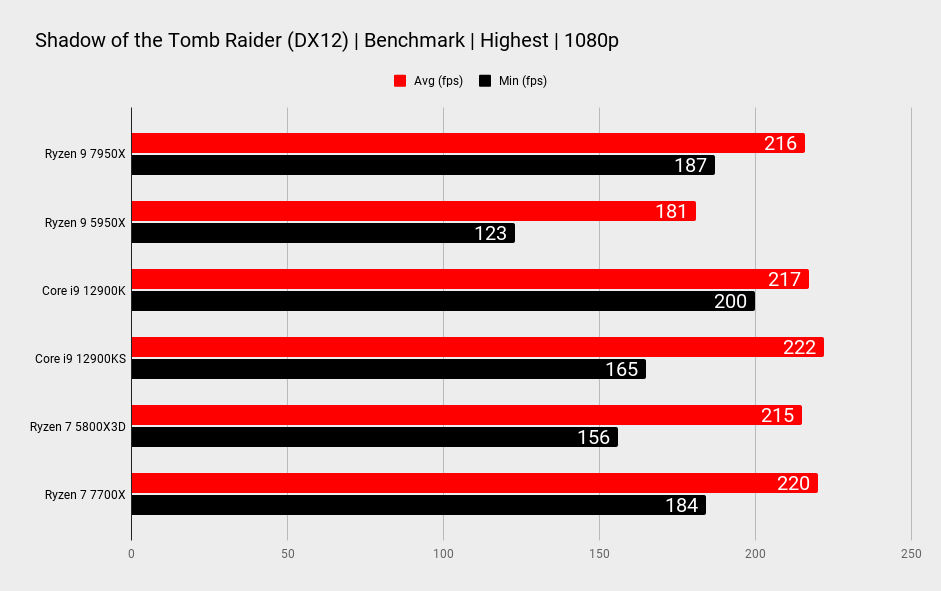
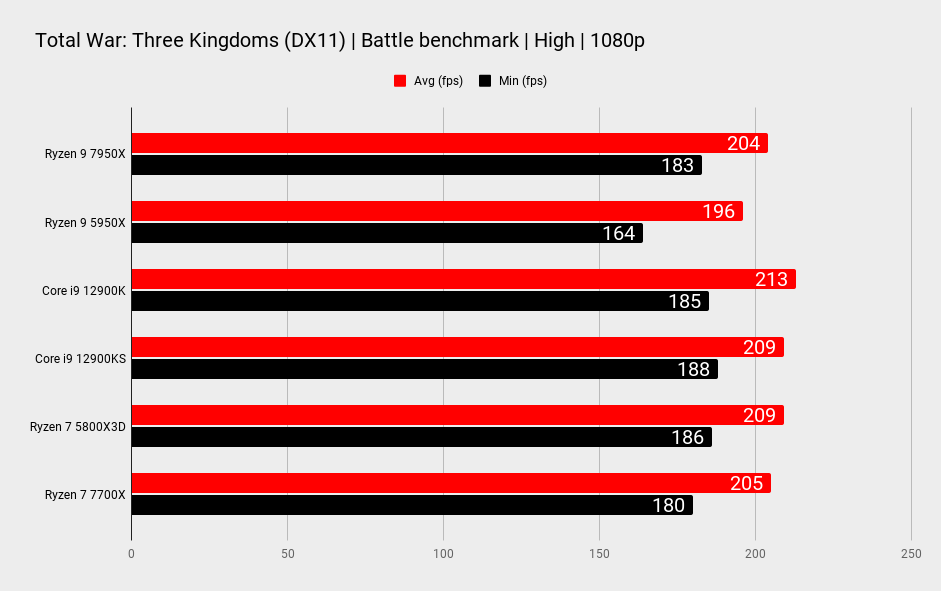
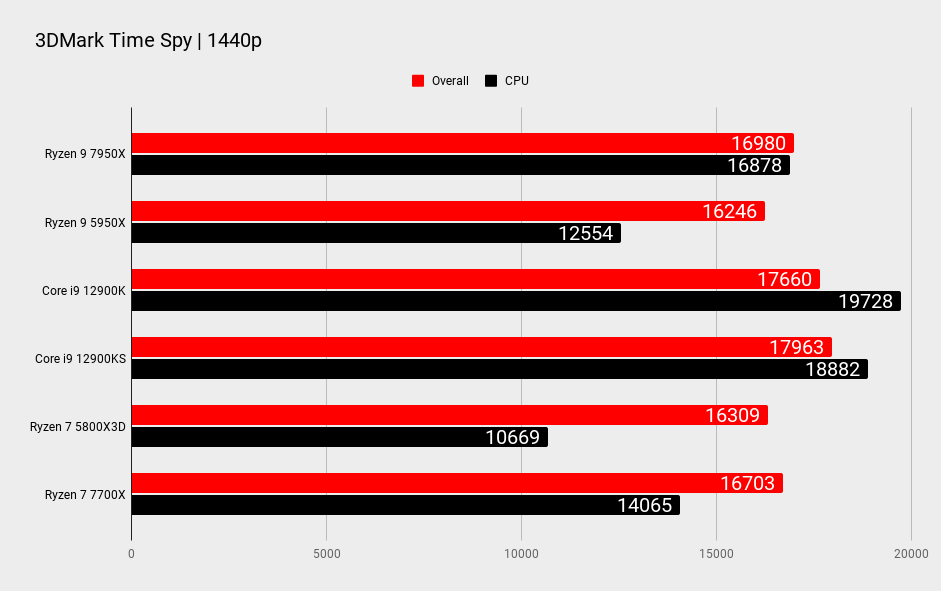
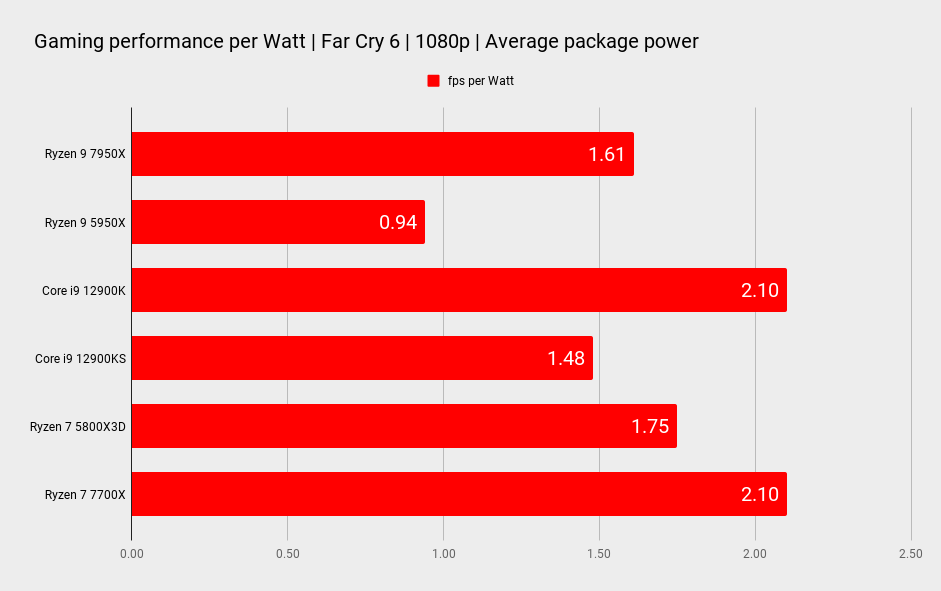
Compute and system performance

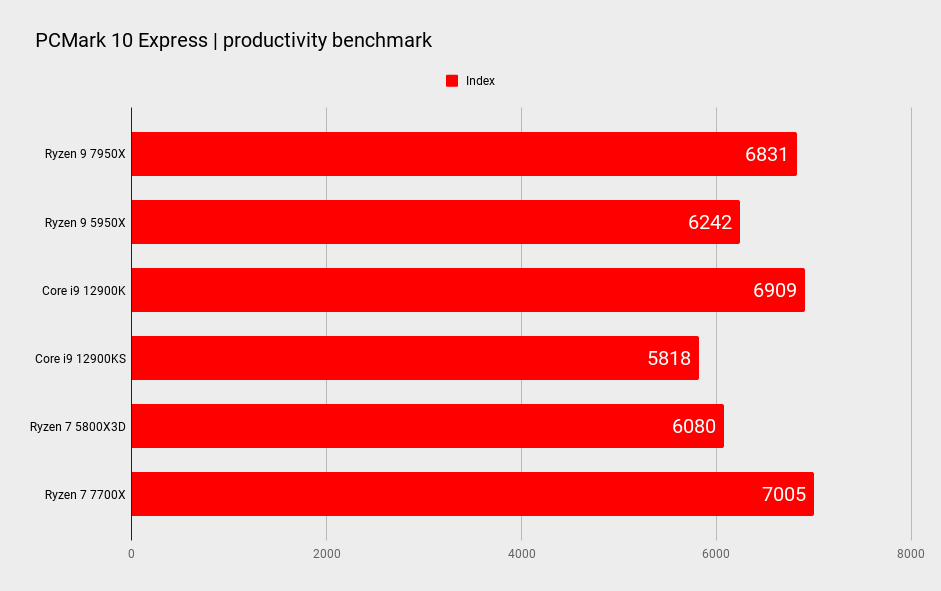
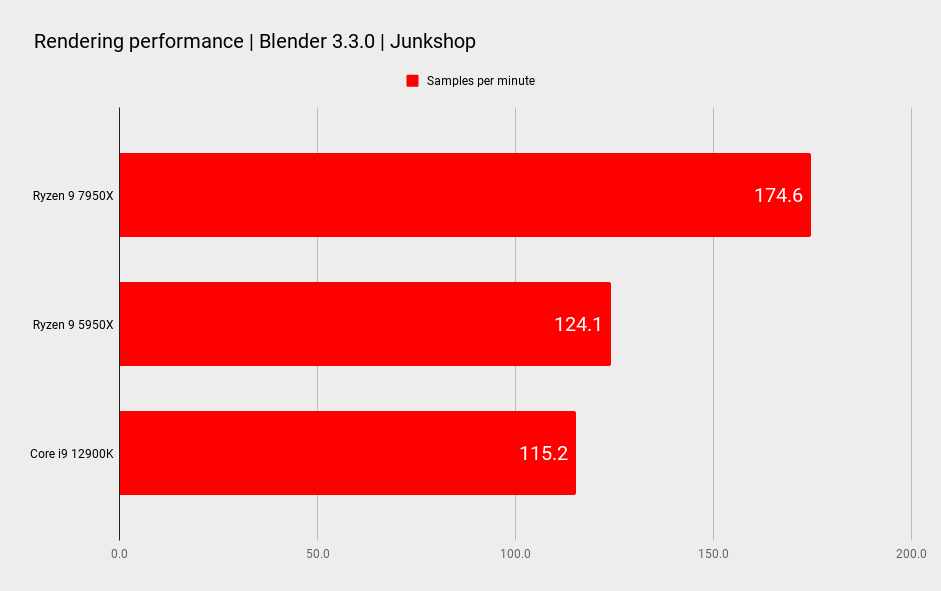
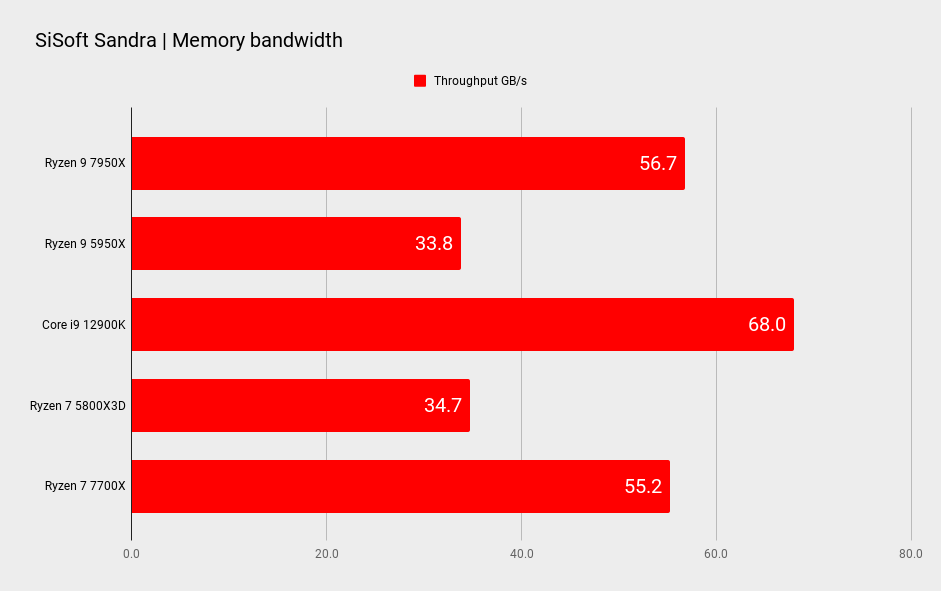
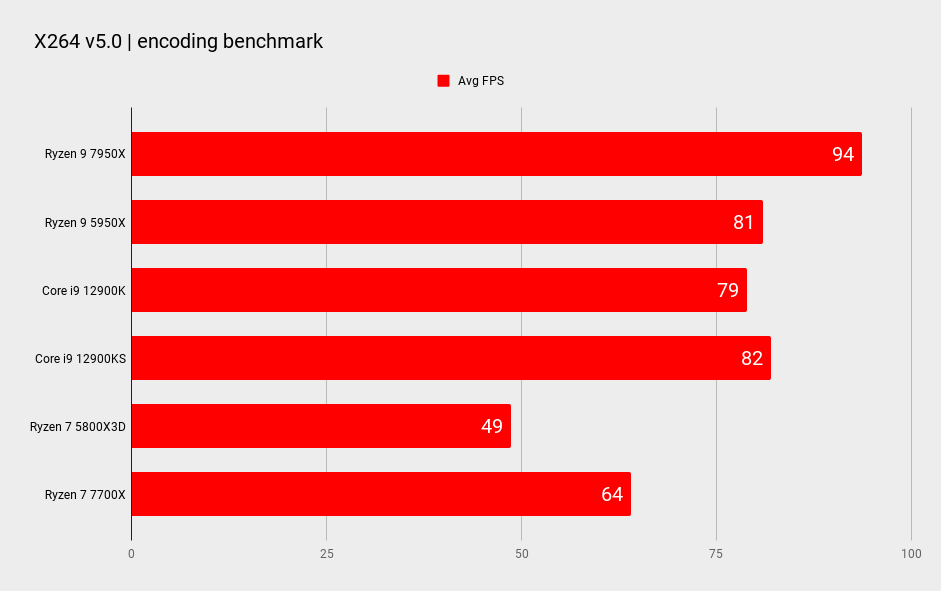
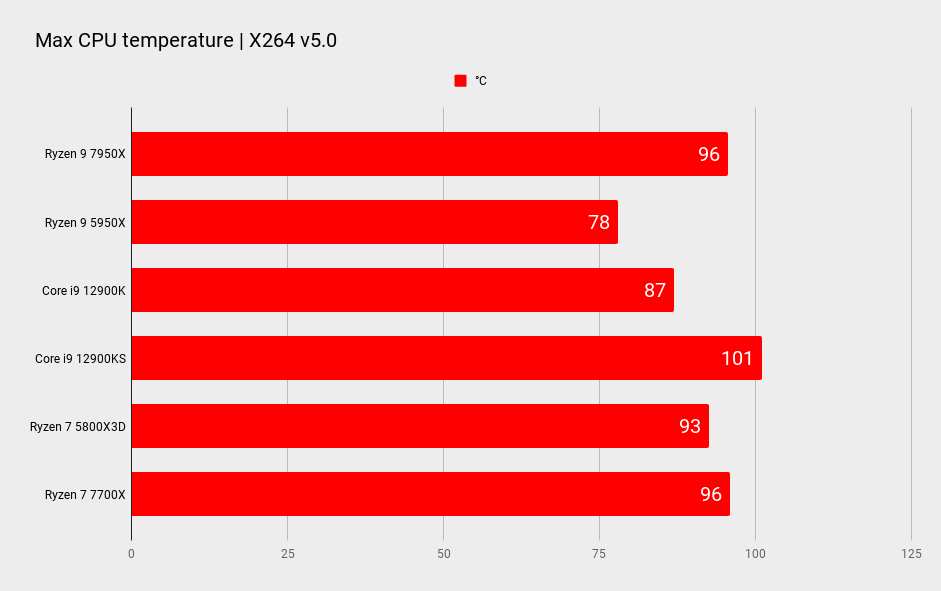
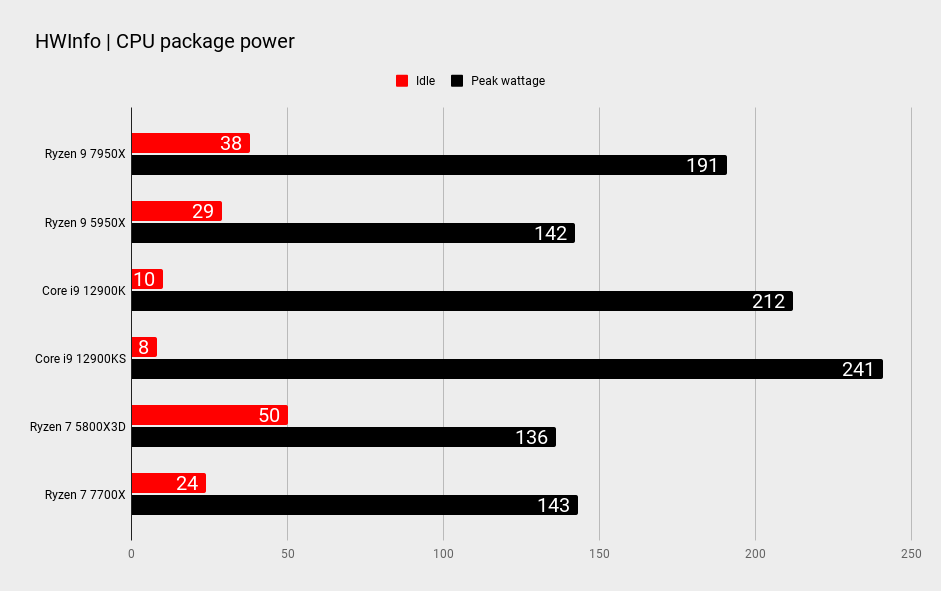
AMD
Motherboard: ASRock X670E Taichi
Memory: G.Skill Trident Z5 Neo DDR5-6000 CL30 2x 16GB
Intel
Motherboard: Asus ROG Z690 Hero
Memory: G.Skill Trident Z5 RGB DDR5-5600 CL36 2x 16GB
Graphics card: Nvidia RTX 3080 10GB
Storage: 1TB WD Black SN850
Cooler: Corsair H100i RGB
PSU: NZXT 850W
Chassis: DimasTech Mini V2
Either way, the Ryzen 7 7700X, is arguably one of the best gaming chips. It keeps pace with the Ryzen 9 7950X, and massively outperforms the old Ryzen 9 5950X when it comes to gaming frame rates. That 5.55GHz single-core clockspeed is really doing the work there.
It's also exemplary of just how efficient the 5nm CCD of the Zen 4 generation is over its Zen 3 forebears. The performance per watt delta is pretty staggering; the Ryzen 7 7700X offers over twice what the Ryzen 9 5950X delivers.
It is also keeping close to the top Alder Lake chip, too. Though I've got a feeling this close touching distance to Intel's processors will be short-lived when the upcoming 13th Gen Raptor Lake CPUs arrive.
Still, the efficient gaming power of this AMD chip has impressed me. I think I'd happily run my Zen 4 chip in Eco Mode 24/7, then maybe consider letting the shackles off if I really wanted to push the computational performance of my machine.
Which, honestly, is a rare occurrence. I don't run my games at 1080p, and at 1440p and 4K, you're more likely to be GPU bound than limited by your processor. And if I'm rendering content, or demanding weird pics from some AI painter, then my graphics card is going to be the core component I reach for.
Therein lies the rub. The role of the CPU is ever diminishing in a world where the computational potential of graphics silicon is being used across an ever wider swathe of disciplines. No longer is it all about the games—where arguably the CPU has been 'good enough' for a while now—but in all parts of the creative world the processor has been relegated to the facilitator for the graphics card; the component which allows the GPU to do its processing unfettered.
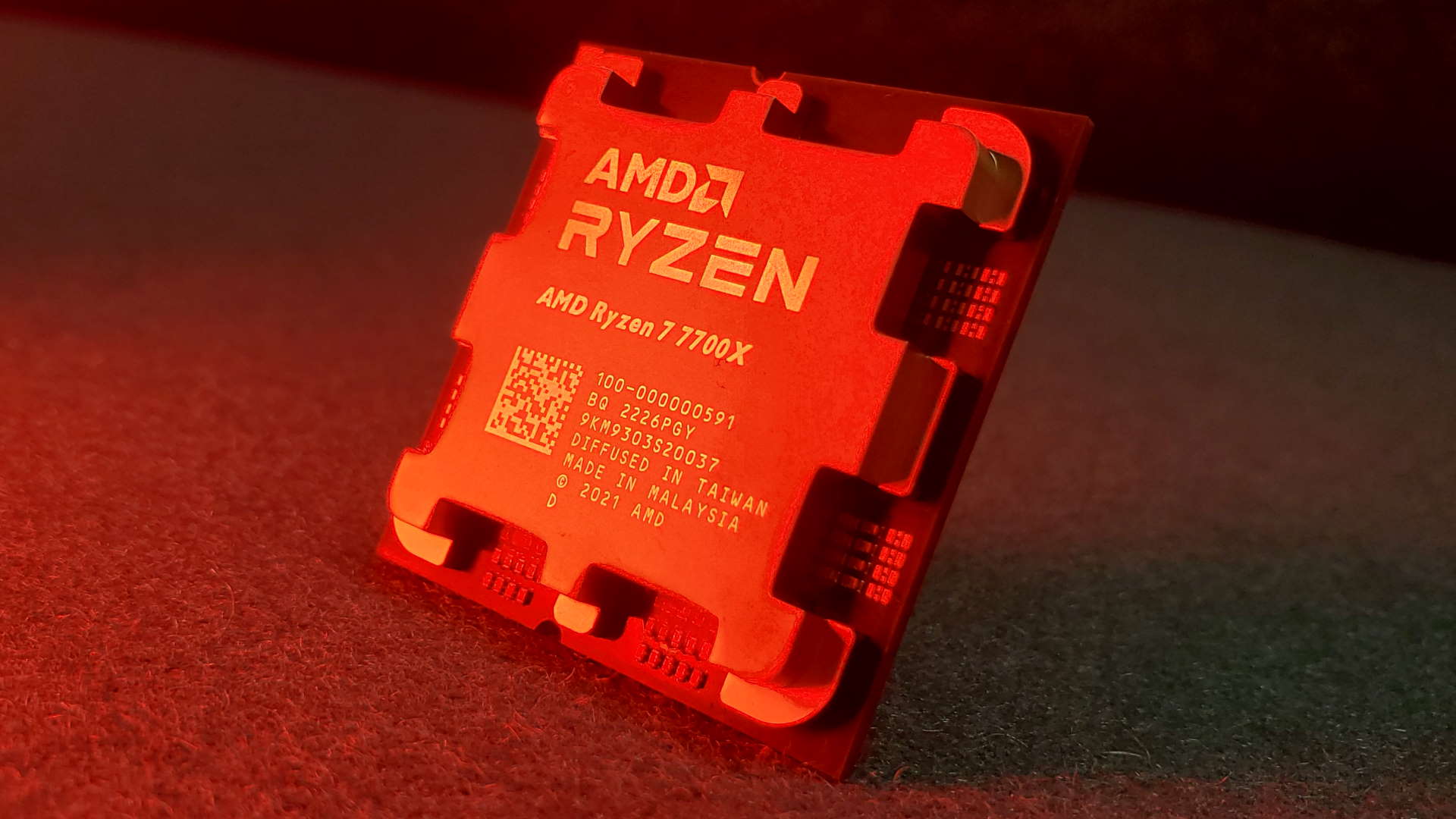
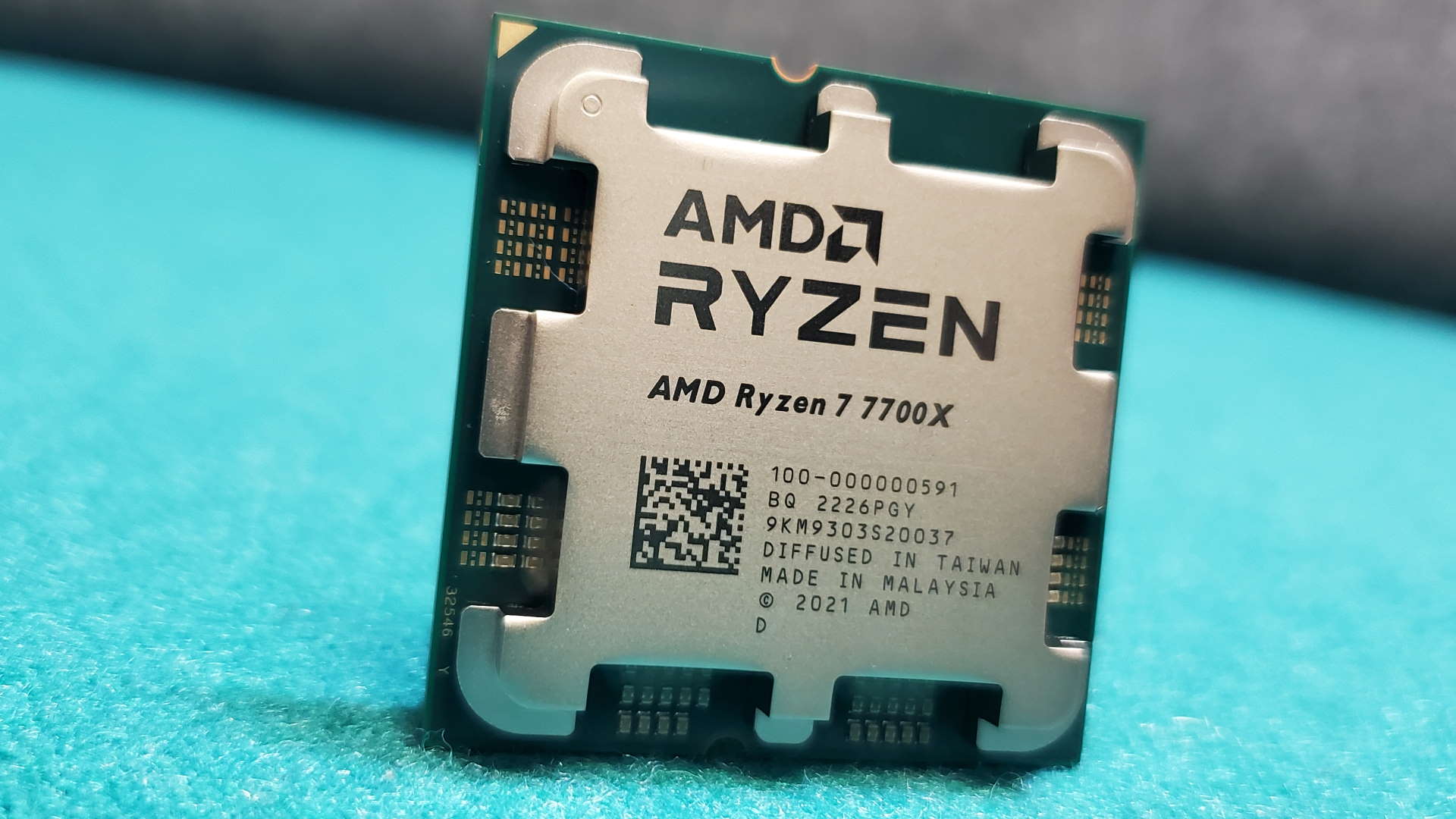
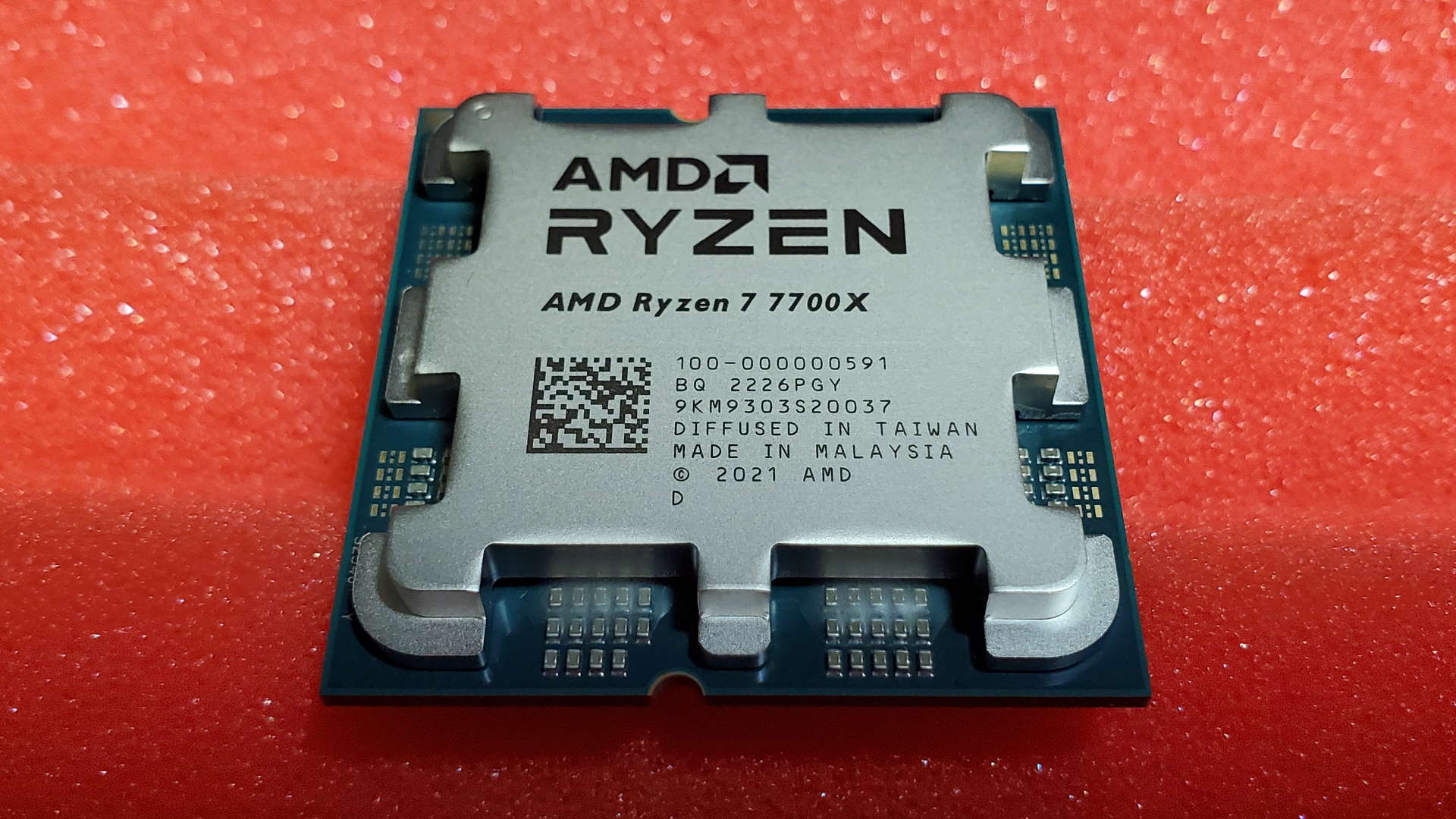
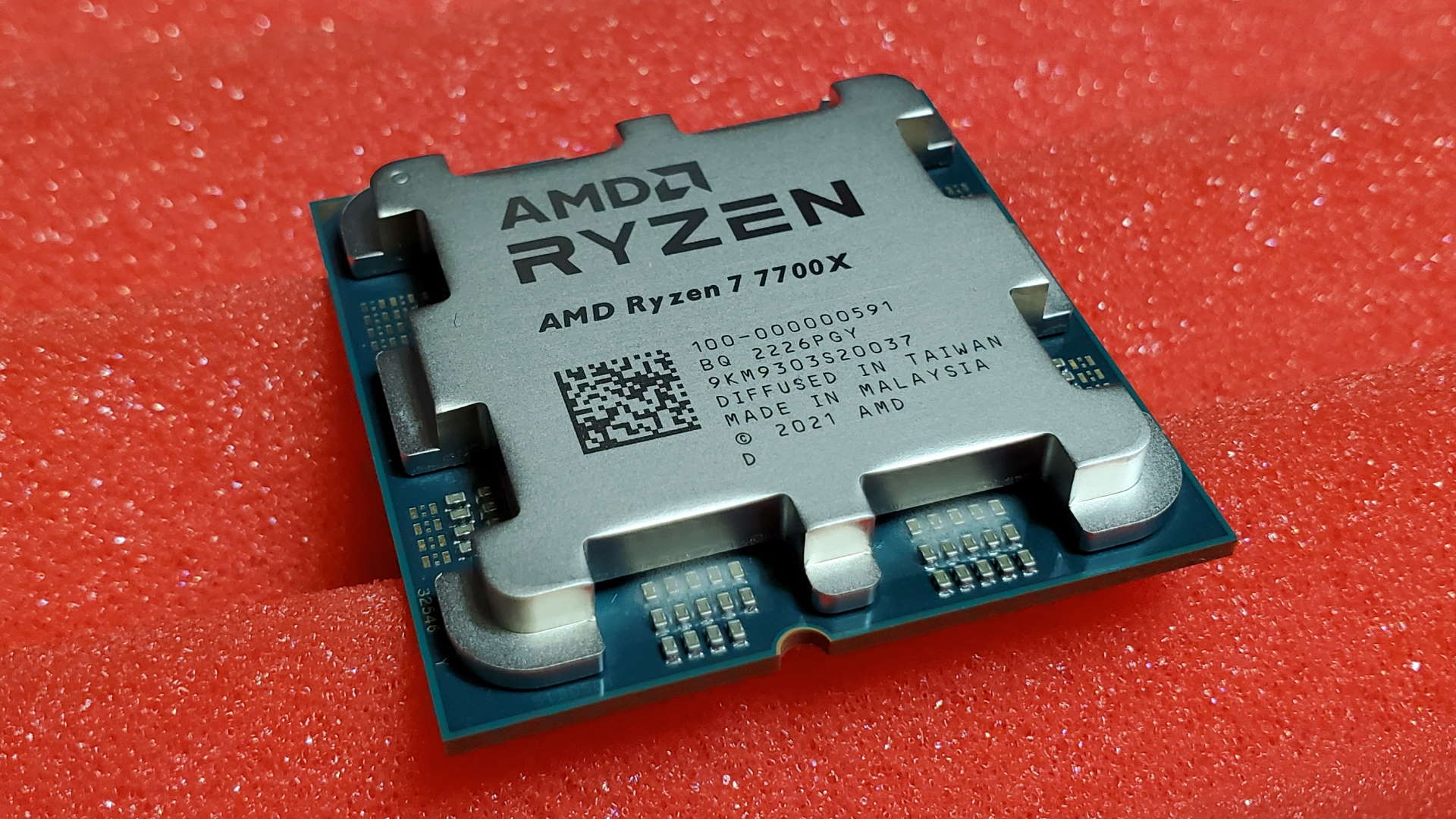
So, the idea of the best gaming CPU does have a certain anachronistic flavour these days. Which makes the idea of spending $699 on a Ryzen 9 7950X a bit much if your PC is primarily a gaming machine. But then, maybe spending $399 on an eight-core CPU is, too, when a humble $200 chip will arguably do just as well in GPU-bound titles at higher resolutions than 1080p.
These existential questions for CPUs aside, there is something else that the Ryzen chips as a whole need to consider: Raptor Lake. Intel's imminent update to Alder Lake is promising higher clock speeds just as Zen 4 has done, more multithreading chops, and already comes with a built-in gaming advantage thanks to whatever its engineers did with the Golden Cove, now Raptor Cove design.
When both Raptor Lake and the Zen 4 3D V-cache Ryzen come out it's going to have to lose any pretensions towards being a high-end gaming CPU.
But the Ryzen 7 7700X is still an excellent example of the generational improvements of the Zen 4 architecture, especially on the efficiency side. This third-tier chip is pretty regularly beating the cache-heavy special edition CPU of the last generation, and that was the best gaming processor AMD had ever made just five months ago. It's efficient, hella fast, and can deliver on the gaming front.
Not quite such an unexciting chip, then.
The poster child for both the generational uplift of the Zen 4 architecture and the efficient potential of the Eco Mode. Though the competition with Alder Lake makes for tough reading.

Dave has been gaming since the days of Zaxxon and Lady Bug on the Colecovision, and code books for the Commodore Vic 20 (Death Race 2000!). He built his first gaming PC at the tender age of 16, and finally finished bug-fixing the Cyrix-based system around a year later. When he dropped it out of the window. He first started writing for Official PlayStation Magazine and Xbox World many decades ago, then moved onto PC Format full-time, then PC Gamer, TechRadar, and T3 among others. Now he's back, writing about the nightmarish graphics card market, CPUs with more cores than sense, gaming laptops hotter than the sun, and SSDs more capacious than a Cybertruck.

